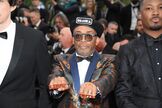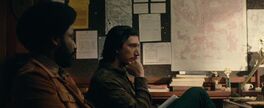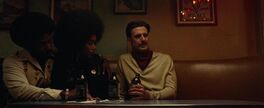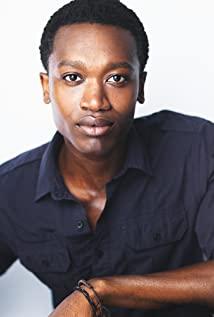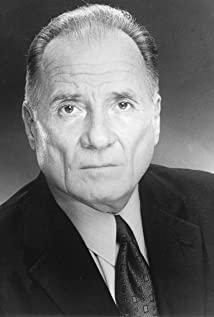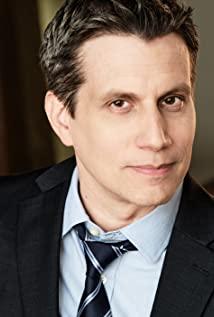Movies that require dramatic conflict are often equated with "sensational" in people's minds, but movies derived from life often give a soft light to reality itself. Movies are always more tender than reality. After the American Civil War, the racial issue of black and white began to falter, and the century-long struggle and repression evolved into the "political correctness" to this day. Presidents can be hacked, politicians can be teased, but minority groups cannot be "talked about".
On the one hand, the status of minority groups has gradually improved, and Obama has gone to the White House. It turns out that the American dream can be black. Wave after wave of "politically correct" films began to imagine the successful resolution of racial and ethnic issues in the United States, and white and black joined hands to bring the United States into a new era. But the reality is cruel and worthy of vigilance. On October 27, the Pittsburgh Public Safety Department released news on the 27th that 11 people were killed in a synagogue shooting in the city that day, and 6 people, including 4 police officers, were injured by gunshots. According to reports, the arrested suspect is a white male.
Turning the clock back to 2017, the anger caused by the Virginia riots grew, and the protests against "white supremacy" in the United States continued, so that some media described it as a "culture war".
Under pressure from many parties, US President Trump finally issued a statement on the Virginia riots on the 14th, clearly condemning the Ku Klux Klan, neo-Nazis and white supremacists. In the end, an innocent woman was killed by an extremist car during the conflict, and her death tainted the movement with blood. A recent survey shows that the white supremacist organization Ku Klux Klan has millions of members, and with the continuous expansion of neo-Nazi groups, all kinds of potential conflicts will tear the United States apart again. In this context, a film with a strong ideological expression set off the film circle.
"BlacKkKlansman" is definitely the most unmissable black "political" movie of the year.
The black director Spike Lee, who has long been successful and won the Oscar for Lifetime Achievement Award, uses a humorous to cartoonish narrative to tell an anecdote about the relationship between black people and the KKK. "BlacKkKlansman" has Spike Lee's "black consciousness", and at the same time has a comedy style that surpasses the entertainment of ordinary Hollywood movies. This is a "variation" of black movies. "BlacKkKlansman" tells an incredible story in a way of hyperbole.
Although this is an entertainment film with many commercial elements, Spike Lee still does not forget to point to racism and political tendencies with various details. The sometimes hilarious and thought-provoking backgrounds of "golden sentences" spewed from the characters' mouths focus on a variety of political topics in a pointed way. This makes the stories set in the early 1970s have the ability to transcend the era and refer to the present. "BlacKkKlansman" looks like a dirty comedy on the outside, but it unleashes chilling horror on the inside. The story tells the bloody experience of Ron (John David Washington, son of Denzel Washington), a rare local black policeman who accidentally broke into the Ku Klux Klan.
In order to investigate further, he could only talk to members of the KKK, and even the leader, on the phone. His colleague, Flip (Adam Driver), a white American policeman of Jewish descent, serves as his stand-in, replacing Ron and joining the local branch of the KKK.
The two cooperated with each other to find out, and vowed to organize the KKK's upcoming terrorist attack on blacks. The motives of "BlacKkKlansman" are set in the aftermath of the Vietnam War. That was the era of the black movement, and the hatred and vigilance of whites against blacks reached its peak. The awakening of black power consciousness has intensified the contradiction between black and white, to the point of life and death. In this context, the identity anxiety of a black police officer and a Jewish white police officer can easily lead to plot tension. Coupled with the story design of mutual undercover, the identity crisis created by multiple identities can provide a steady stream of dramatic conflicts.
As a rare black police officer at the time, Ron was marginalized, neglected, and ignored in the police station. Breaking into the white supremacist Ku Klux Klan and successfully solving the case meant a lot to him. At the same time, he became involved with the local black supremacy organization, and even fell in love with the president of the student body within the organization. No matter where he is, he cannot face up to his identity, and the anxiety of color has always accompanied his life and work.
Jewish white police detectives Flip and Ron can be described as brothers and sisters, and their ability to finally get together has something to do with Flip's mind about his Jewish minority identity. After posing as Ron and breaking into the 3K organization, the members' extreme views on Jews instead stimulated Flip's Jewish identity. Those harsh words and blatant discrimination aroused his long-suppressed Jewish identity.
It has to be said that such character designs are very interesting and functional. For the conflict between black and white, it is really suitable to rely on two black and white characters whose identities are wobbly as an entry point. Of course, Spike Lee has more than this skill. Between the big political background and the little people, he also established two extremely independent organizations, both of which want to tear each other apart and fight for rights.
In the third act of the climax, an impressive parallel cut shows Spike Lee's calm style. The great parallel cut brings the subject to a boil as the two are about to break the KKK plot. On one side is the baptism and admission ceremony of the KKK, and on the other side, the black organization tells about the inhuman crimes, rituals and accusations committed by the KKK against blacks in the same way, gradually getting better and better until the climax. The moment the baptism was completed, the old black man just finished telling the horror crimes at that time, and the opposition between black and white naturally reached its peak.
With rich textual contrasts and a mapping of the current life context, "BlacKkKlansman" continues to enhance the depth of the play, making it more interpretable beyond entertainment. In addition to the ever-strengthening various antagonistic relationships, "Black Klansman" also inserted many scenes that refer to reality in the film from time to time, providing the film with rich playability. For example, in the opening scene of the film, a white host imitates Trump and rants about making America a white America. The leader of the 3K organization in the film, David (a real person), imitated many of Trump's famous sayings, and was portrayed as being silly and foolish.
Not to mention, the controversial work "The Birth of a Nation" that is constantly mentioned in the film, this black and white film shot in 1915, tells the story of the violent revenge of the members of the Ku Klux Klan, and the target of revenge is undoubtedly the black community. .
There are obvious stereotypes of black people and extreme ideological biases in the film. The Birth of a Nation is also the only film that has been screened at the White House with overt racist tendencies. It has naturally become the image bible of the Ku Klux Klan. No matter from the story of the film itself, the setting of the characters, the narrative technique, or the rich embellishment of these seasonings, "BlacKkKlansman" has a realistic ideological propaganda while maintaining entertainment.
This kind of ideological propaganda is clearly revealed at the end of the film. At the end of the film, the 2017 Virginia riots are reproduced in the form of news. The speeches of the leader David and the current US president in the film are shown as "unspoken", suggesting that today's Views on racial issues at the upper echelons of American politics.
The "BlacKkKlansman", which is generally biased towards comedy style, showed its fangs in the final "extra story". In fact, this vigilance is also shown in the previous symbolic ending. After the case, although the director congratulated the two detectives, he ordered the destruction of the investigation evidence and could not be released to the public; then Ron and his girlfriend took out their pistols alertly when they heard someone knock on the door at home; finally, it was 3K. Party members surrounded the flaming cross.
Such an outcome is self-evident and shows how extremism is looming over America at all times. Rich in text and comedic about realism, Spike Lee has made an innovative black film that will leave a lasting impression on 2018 and beyond.
View more about BlacKkKlansman reviews



